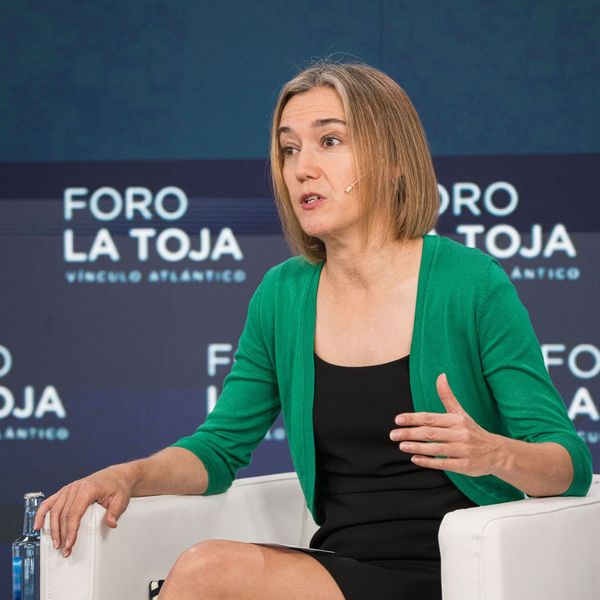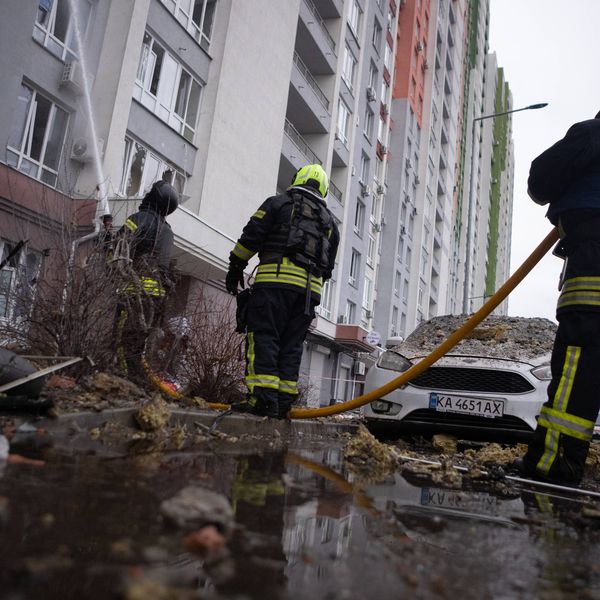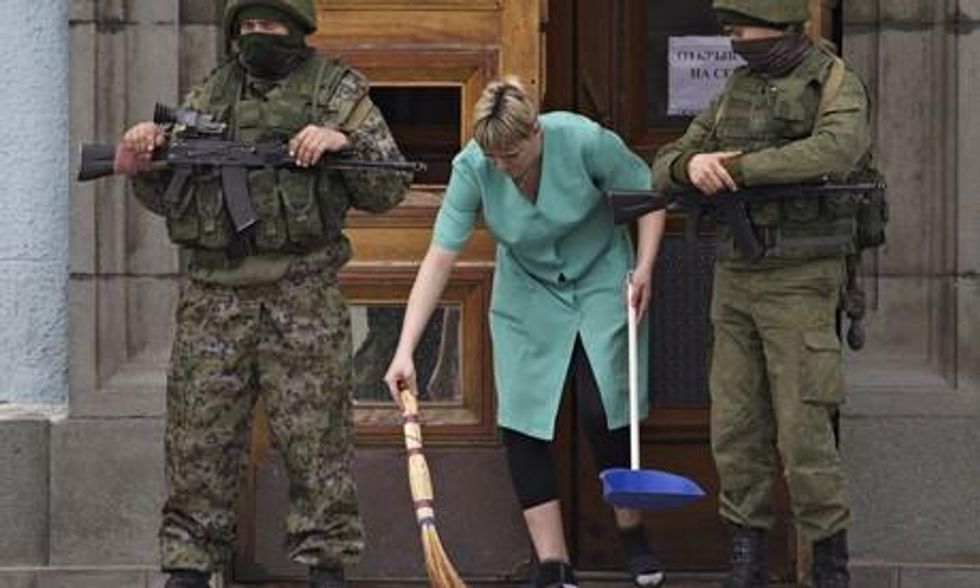Were he talking about the country's economic plight he would have a point. Instead, along with much of the US and European media, he was over-dramatising developments in the east, where Russian speakers are understandably alarmed after the new Kiev authorities scrapped a law allowing Russian as an official language in their areas. They see it as proof that the anti-Russian ultra-nationalists from western Ukraine who were the dominant force in last month's insurrection still control it. Eastern Ukrainians fear similar tactics of storming public buildings could be used against their elected officials.
Kerry's rush to punish Russia and Nato's decision to respond to Kiev's call by holding a meeting of member states' ambassadors in Brussels on Sunday were mistakes. Ukraine is not part of the alliance, so none of the obligations of common defence come into play. Nato should refrain from interfering in Ukraine by word or deed. The fact that it insists on getting engaged reveals the elephant in the room: underlying the crisis in Crimea and Russia's fierce resistance to potential changes is Nato's undisguised ambition to continue two decades of expansion into what used to be called "post-Soviet space", led by Bill Clinton and taken up by successive administrations in Washington. At the back of Pentagon minds, no doubt, is the dream that a US navy will one day replace the Russian Black Sea fleet in the Crimean ports of Sevastopol and Balaclava.
Since independence, every poll in Ukraine has shown a majority against Nato membership, yet one after another the elites who ran the country until 2010 and who are now back in charge ignored the popular will. Seduced by Nato's largesse and the feeling of being part of a hi-tech global club, they took part in joint military exercises and even sent Ukrainian troops to Iraq and Afghanistan.
The deposed Viktor Yanukovych, for all his incompetence, corruption and abuse of power, was the first president to oppose Nato membership in his election campaign and then persuade parliament to make non-alignment the cornerstone of the country's security strategy, on the pattern of Finland, Ireland and Sweden. Nato refused to accept it. As recently as 1 February, before the latest crisis, Anders Fogh Rasmussen, the empire-building secretary general, told a security conference in Munich: "Ukraine must have the freedom to choose its own path without external pressure." The implication was clear: if only it were not for those beastly Russians, Ukraine would be one of us. Had Rasmussen said: "Ukraine has chosen nonalignment and we respect that choice," he would have been wiser.
It is not too late to show some wisdom now. Vladimir Putin's troop movements in Crimea, which are supported by most Russians, are of questionable legality under the terms of the peace and friendship treaty that Russia signed with Ukraine in 1997. But their illegality is considerably less clear-cut than that of the US-led invasion of Iraq, or of Afghanistan, where the UN security council only authorised the intervention several weeks after it had happened. And Russia's troop movements can be reversed if the crisis abates. That would require the restoration of the language law in eastern Ukraine and firm action to prevent armed groups of anti-Russian nationalists threatening public buildings there.
The Russian-speaking majority in the region is as angry with elite corruption, unemployment and economic inequality as people in western Ukraine. But it also feels beleaguered and provoked, with its cultural heritage under existential threat. Responsibility for eliminating those concerns lies not in Washington, Brussels or Moscow, but solely in Kiev.




